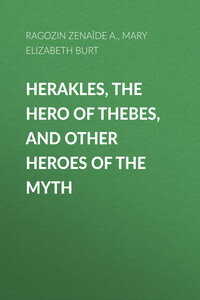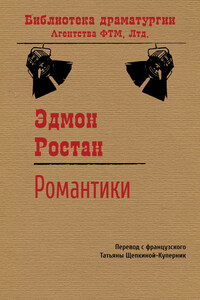The child’s heart goes out to the man of action, the man who makes short work of things and gets directly at a result. He responds to life, to energy, quick wit, the blow that hits the nail on the head at the first stroke.
The rapidity of action in the stories of Herakles, Jason, and other Heroes of the Myth, the prowess and courage and untiring endurance of the men, render the characters worthy subjects of thought to young minds, and have secured the stories a permanent place in educational literature. It is not elegant literature alone that boys need, but inspiring ideals which will impel them to stand fearlessly to their guns, to do the hard thing with untiring perseverance, to reach the result with unerring insight.
It is exactly this unbending courage in Herakles and his comrade heroes, that has made them the backbone of literature for ages, holding their own in spite of the sapless literary fungus crowding our book-shelves.
While travelling in Greece I found the children of the primary schools reading these stories in the lower grades, the book being the one used next above the primer. The interest was enthusiastic, and I brought home a copy of the book, which, with Madame Ragozin’s collaboration, I have arranged as a first or second book of reading for our own schools.
The John A. Browning School,
New York, March 15, 1900.
INTRODUCTION
THE LAND OF THE HEROES
One look at the map of Greece will show us that it is the smallest of European countries. For many hundreds of years it was inhabited by the handsomest, bravest, and most intelligent people in the world. But these people, the Greeks, or Hellenes, as they called themselves, had not always lived in the country.
Thousands of years before the Hellenes came to Greece it was a perfect wilderness of mountains, narrow valleys, torrents, and tangled forests. It was a land of wild beasts, and they were so numerous and fierce that there was almost no room for men.
Yet men did live there, but we know nothing about them or what they were like, except that they hid in caves and had hardly got beyond the art of making fire, trapping and killing the less dangerous animals with sticks or little arrows pointed with stones, and using their meat for food and hides for clothing.
Then the new people, the Greeks, began to come into the country. They came in boats from across the sea and on foot from the north, through numberless mountain-passes. They did not come all at once, but in small detachments, in single tribes, so that it took them many years to spread over the country.
The new race was nobler than the old, more advanced in knowledge and in the arts of civilized life. It was not a race to be content with caves and forest-dens, but each tribe, after it had chosen a district and taken possession of it, selected some high hill, built rude dwellings upon it and temples to its patron gods, a public treasure-house also, and enclosed the hill with strong walls. It had become a fortress, and was called Acropolis, in their language.
Each tribe, of course, had its leaders, usually belonging to some family which had earned the gratitude and loyalty of the people by brave and affectionate service, and the leadership descended from father to son. These were the kings and they resided within the Acropolis.
Around it and under the protection of its walls the people built their own huts and began to clear the land. They sowed various crops, planted the vine and the olive, and raised herds of sheep and goats. There was room enough within the walls for all the families, with their herds, to find shelter in the Acropolis in times of danger, from the attacks of the wild natives or of the still wilder beasts of the forests and fields.
Now these latter were by far the most dangerous enemies of the new settlers, who soon found that they could venture but a few miles from their small home-farms without encountering huge and ferocious animals which the increased herds attracted and which their miserable weapons were utterly insufficient to slay or even put to flight.
Each small district had its particular terror, just as many districts of India now have a man-eating tiger, which makes miles and miles of country around unsafe for man or beast.
It became a question which of the two, the men or the wild animals, would remain in possession. Then young and courageous men, sons of the ruling families, athletes in strength, practised in the arts of war, commanding through their greater wealth the use of better weapons, felt it their duty to their people to do for them what the poor herdsmen and laborers had neither the strength nor the skill to do for themselves.
From all the central royal cities they started singly or in small troops, a bevy of young heroes, as eager for the delights of adventure as for the public good. Year after year they wandered across country seeking the most impassable wildernesses, directed by the stories they heard on their way to the dens of the cruel monsters, which they usually overcame by force or cunning.








